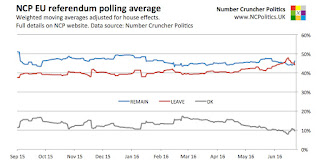How the authoritarian dynamic shaped UK politics

Recently, on Twitter, the work of Karen Stenner generated some excellent debate. In her book, The Authoritarian Dynamic (2005), she builds a strong case that authoritarianism is a trait is always present within society. She predicts that roughly a third of any population will have the predisposition, the implications of which are far-reaching and profound. They were explored brilliantly in a thread by @dasvee (das_v, 2021). Crucial to the argument is that levels of threat are knowingly manipulated by politicians with the help of a complicit media. Understanding how authoritarianism can be triggered can help answer some of the most puzzling questions. Why, for example, does Tory support remain so consistently high? Why do people often vote against their own interests? Why is the strategy of division so effective? Investigations into the authoritarian disposition derive from the catastrophes of the 20th Century. They acknowledge that for a nation state to become fascist, the people the...
